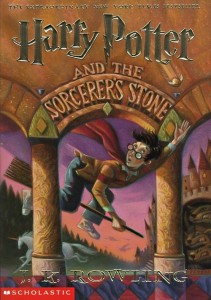Character: Harry Potter
Source Text: Rowling, J.K. Harry Potter Series. New York: Scholastic, 1998-2007. Print.
Entry Author: Jessica Davis
“Mudblood is a really foul name for someone who was Muggle-born – you know, non-magical parents. There are some wizards – like Malfoy’s family – who think they’re better than everyone else because they’re what people call pure-blood… I mean, the rest of us know it doesn’t make any difference at all” (Rowling, Chamber of Secrets, 89).
Mudblood is a sort of racial term describing a witch or wizard born to two muggle parents, describing their blood as filthy.
One of the most profound advocates for equal rights of blood status, is Albus Dumbledore. He is a constant reminder in the series to treat people equally, and never judge them based on where they come from or what they may be.
“You place too much importance, and you always have done, on the so-called purity of blood! You fail to recognize that it matters not what someone is born, but what they grow to be!” (Rowling, Goblet of Fire, 708).
This sort of stance is what Rowling is trying to teach her readers that differences mean nothing to those with open minds and a willingness to accept others. The pureness of a witch or wizard’s blood is thought to keep magical ability within magical families, but magic can be passed down even through muggle families.
Ironically, Harry’s half-blood status is one of the greatest plot movers, since Lord Voldemort uses this fact to choose Harry as his eventual downfall, due to a prophecy. The choice is between Harry the half-blood, and Neville Longbottom, a pure-blood schoolmate of Harry’s. It is believed that Lord Voldemort chooses Harry because his half-blood status is closest to Lord Voldemort’s half-blood status. This choice drives the whole novel from beginning to end, with the underlying message of tolerance towards others and social discrimination.

